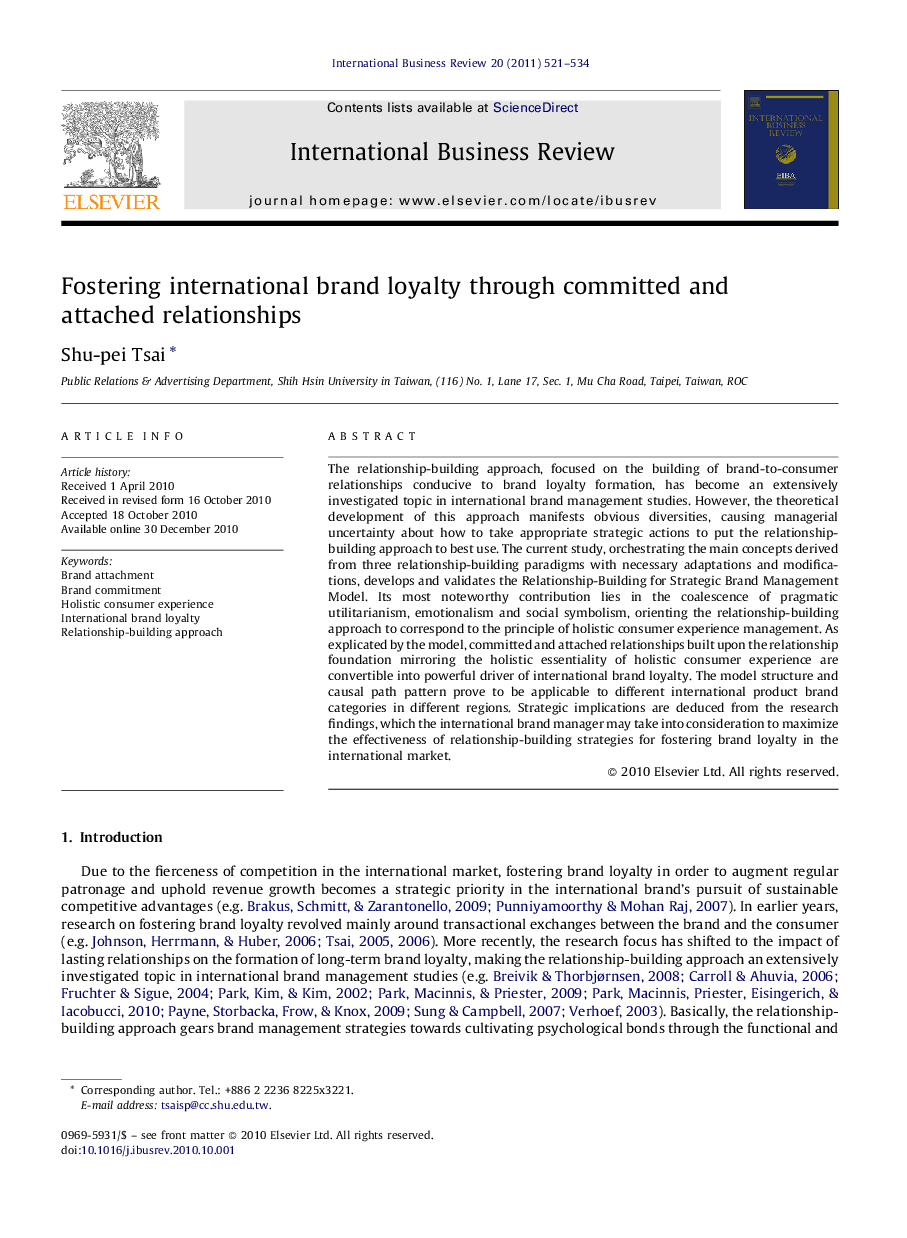| Article ID | Journal | Published Year | Pages | File Type |
|---|---|---|---|---|
| 1001891 | International Business Review | 2011 | 14 Pages |
The relationship-building approach, focused on the building of brand-to-consumer relationships conducive to brand loyalty formation, has become an extensively investigated topic in international brand management studies. However, the theoretical development of this approach manifests obvious diversities, causing managerial uncertainty about how to take appropriate strategic actions to put the relationship-building approach to best use. The current study, orchestrating the main concepts derived from three relationship-building paradigms with necessary adaptations and modifications, develops and validates the Relationship-Building for Strategic Brand Management Model. Its most noteworthy contribution lies in the coalescence of pragmatic utilitarianism, emotionalism and social symbolism, orienting the relationship-building approach to correspond to the principle of holistic consumer experience management. As explicated by the model, committed and attached relationships built upon the relationship foundation mirroring the holistic essentiality of holistic consumer experience are convertible into powerful driver of international brand loyalty. The model structure and causal path pattern prove to be applicable to different international product brand categories in different regions. Strategic implications are deduced from the research findings, which the international brand manager may take into consideration to maximize the effectiveness of relationship-building strategies for fostering brand loyalty in the international market.
Research highlightsThe relationship-building approach, focused on the building of brand-to-consumer relationships conducive to brand loyalty formation, has become an extensively investigated topic in international brand management studies. However, the theoretical development of this approach manifests obvious diversities, causing managerial uncertainty about how to take appropriate strategic actions to put the relationship-building approach to best use. The current study, orchestrating the main concepts derived from three relationship-building paradigms with necessary adaptations and modifications, develops and validates the Relationship-Building for Strategic Brand Management Model. Its most noteworthy contribution lies in the coalescence of pragmatic utilitarianism, emotionalism and social symbolism, orienting the relationship-building approach to correspond to the principle of holistic consumer experience management. As explicated by the model, committed and attached relationships built upon the relationship foundation mirroring the holistic essentiality of holistic consumer experience are convertible into powerful driver of international brand loyalty. The model structure and causal path pattern prove to be applicable to different international product brand categories in different regions. Strategic implications are deduced from the research findings, which the international brand manager may take into consideration to maximize the effectiveness of relationship-building strategies for fostering brand loyalty in the international market.
